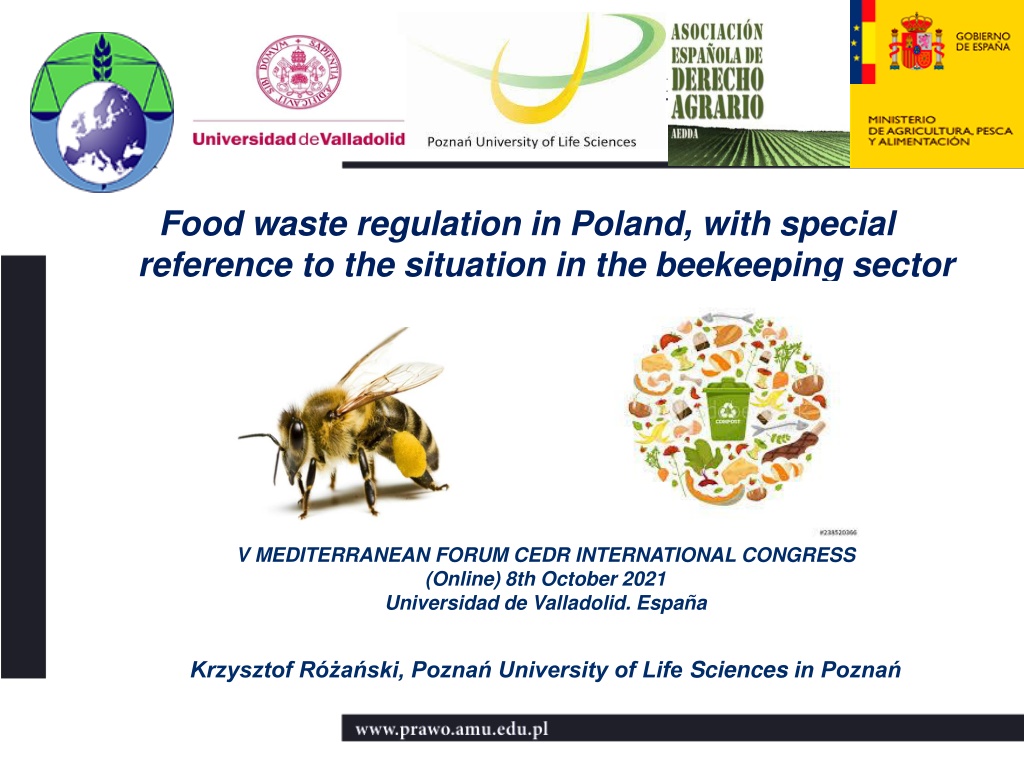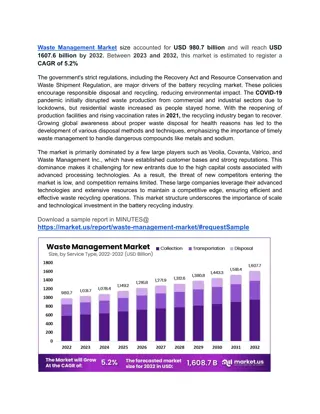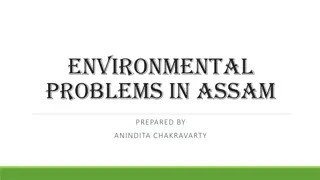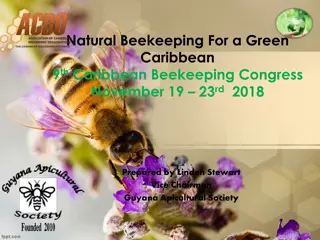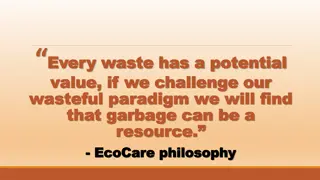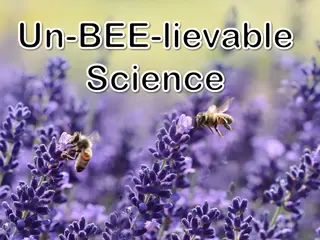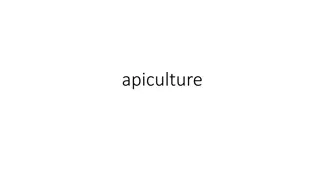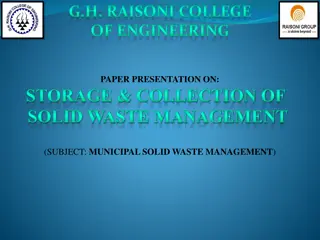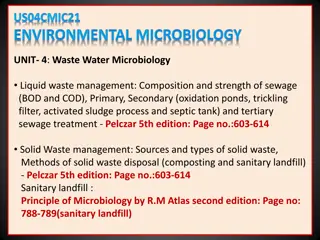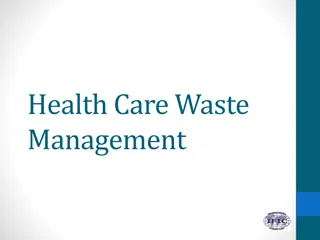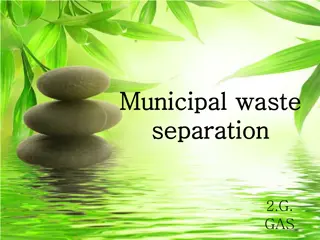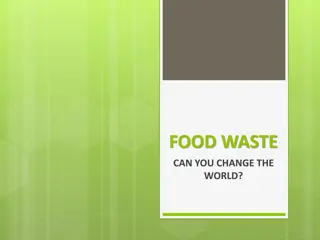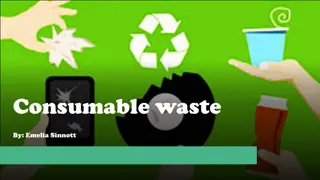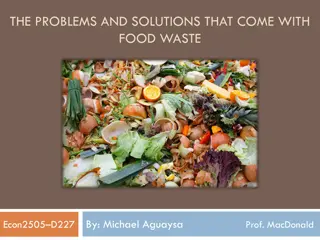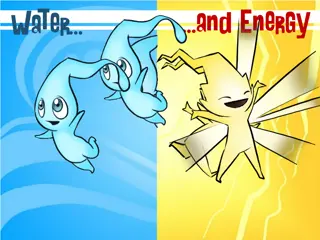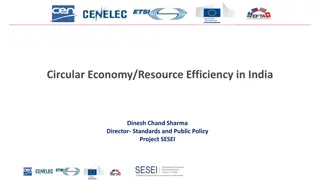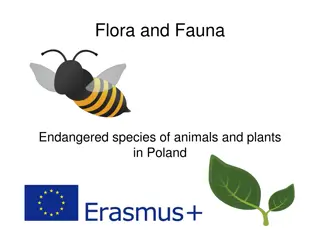Food Waste Regulation in Poland: Focus on Beekeeping Sector
Poland ranks 5th among European Member States in total food waste, with approximately 3 million tons from households alone. The country is responsible for 10% of EU food waste annually, amounting to 9 million tons, with two-thirds of the wasted food still within its expiration date. The Polish Parliament enacted the Act on Counteracting Food Waste in July 2019, outlining regulations for food sellers to manage and reduce food waste effectively.
Download Presentation

Please find below an Image/Link to download the presentation.
The content on the website is provided AS IS for your information and personal use only. It may not be sold, licensed, or shared on other websites without obtaining consent from the author. Download presentation by click this link. If you encounter any issues during the download, it is possible that the publisher has removed the file from their server.
E N D
Presentation Transcript
Food waste regulation in Poland, with special reference to the situation in the beekeeping sector V MEDITERRANEAN FORUM CEDR INTERNATIONAL CONGRESS (Online) 8th October 2021 Universidad de Valladolid. Espa a Krzysztof R a ski, Pozna University of Life Sciences in Pozna
Gospodarcze znaczenie dziaalnoci pszczelarskiej Poland scores relatively high on total food waste. Poland ranks 5th among European Member States. According to the results of the research carried out in 2020 by the Institute of Environmental Protection National Institute and the Warsaw University of Life Sciences, as a part of the project entitled Development of Monitoring System of Food Waste as well as Efficient Program of Rationalization and Reduction of Loss and Waste of Food , it was shown that as much as 60%, or nearly 3 million tons, of food thrown away comes from households. Research
Gospodarcze znaczenie dziaalnoci pszczelarskiej According to scientific surveys Poland is accountable for as much as 10 percent of EU food waste per year, amounting to 9 mln tons. Moreover, two-thirds of that food is within its expiration date. The Polish Parliament has adopted on 19th of July of 2019 Act on Counteracting Food Waste
Gospodarcze znaczenie dziaalnoci pszczelarskiej As a matter of principle the Act shall cover solely food sellers, meaning entities that meet jointly the following conditions: are food business operators within the meaning of Article 3(3) of the Regulation (EC) No. 178/2002; the scope of the operated food business covers sales of food in retail sales outlets or wholesale trade units; the sales area in a retail sale outlet or a wholesale trade unit exceeds 250 square meters within the meaning of Article 2(19) of the Act of 27 March 2003 on Spatial Planning and Management (consolidated text, Polish Journal of Laws of 2018, item 1945, hereinafter: the Spatial Planning and Management Act) or 400 square meters during the first two years following the implementation of the Food WasteAct; revenues from the sales of food account for at least 50 percent of the total revenues from sales.
Gospodarcze znaczenie dziaalnoci pszczelarskiej Responsibilities of food business operators As per the passed provisions, entrepreneurs acting as food business operators are required to: enter into an agreement with a non-governmental organization for food transfer; conduct educational and informational campaigns on rational management of food and prevention of food waste at the outlet; and pay charges for wasting food; file an annual report on food waste.
Gospodarcze znaczenie dziaalnoci pszczelarskiej The fee imposed on the food sellers is calculated by the end of the calendar year as the product of the rate of the fee and the weight of food wasted. The base for calculating the fee is 90 percent of the mass of the food in kgs, while the rate amounts to PLN 0.1 per 1 kilogram of wasted food. The operator may deduct the fee by the costs of the conducted educational and informational campaigns along with the costs of performing the contract concluded with an NGO, with particular regard to the costs of food transport and distribution.
Gospodarcze znaczenie dziaalnoci pszczelarskiej The fee imposed on the food sellers is calculated by the end of the calendar year as the product of the rate of the fee and the weight of food wasted. The base for calculating the fee is 90 percent of the mass of the food in kgs, while the rate amounts to PLN 0.1 per 1 kilogram of wasted food. The operator may deduct the fee by the costs of the conducted educational and informational campaigns along with the costs of performing the contract concluded with an NGO, with particular regard to the costs of food transport and distribution.
Gospodarcze znaczenie dziaalnoci pszczelarskiej Sanctions for breaching the provisions of the Food Waste Act In the event of breach of the provisions laid down in the Food Waste Act, two types of sanctions may be imposed: penal sanctions in the form of a fine imposed under the provisions of the Act of 24 August 2001 Code of proceedings in misdemeanour cases, for failure to submit a written annual report on food waste by March 31 of the calendar year following the year to which the report relates; and administrative sanctions in the form of a financial penalty in the amount of PLN 5,000 for non-conclusion of a contract with an NGO on free transfer of food and/or a financial penalty in the amount ranging from PLN 500 to PLN 10,000 for a breach of the obligation to pay the fee for wasted food, payable to a selected NGO
Gospodarcze znaczenie dziaalnoci pszczelarskiej 1. Bees pollinate more than 80% of wild and cultivated plants in the world, influencing on the seize of the crops and at the same time contributing to maintain the food security in all 28 Member States. 2. Furthermore, honey bees help to keep the proper level of biodiversity of natural ecosystems. It is estimated that pollination of plants by Apis mellifera guarantees the EU economy a profit of more than 22 billion annually.
Gospodarcze znaczenie dziaalnoci pszczelarskiej Threats for the sector: 1. Economic causes, 2. Biological causes, 3. Chemical causes, 4. Environmental causes.
Gospodarcze znaczenie dziaalnoci pszczelarskiej The relevant legislation at the EU level includes the following acts of law (among others): 1. Regulation 1308/2013, which establishes a common organisation of the markets in apicultural products and determines the fundamental rules regarding the support for the apiculture sector, 2. Commission Delegated Regulations (EU) 2015/1366 and 2015/1368, regulating the effective provision of aid in the apiculture sector, for example by drawing up the rules for implementing and financing national apiculture programms, 3. Council Directive 2001/110/EC relating to honey, which specifies the different types of honey products that can be placed on the market under appropriate names and determines the labelling and packaging rules as well as the requirements for providing information regarding the products origin.
Gospodarcze znaczenie dziaalnoci pszczelarskiej CJEU of 6 September 2011 in case C-442/09, Karl Heinz Bablok and Others v Freistaat Bayern
Gospodarcze znaczenie dziaalnoci pszczelarskiej Food waste in beekeeping sector Generally speaking food waste in beekeeping sector is limited mainly due to the fact that beekeeping products have a long expiry date, Still, the food fraud is a serious issue which EU beekeeping sector is faces now.
